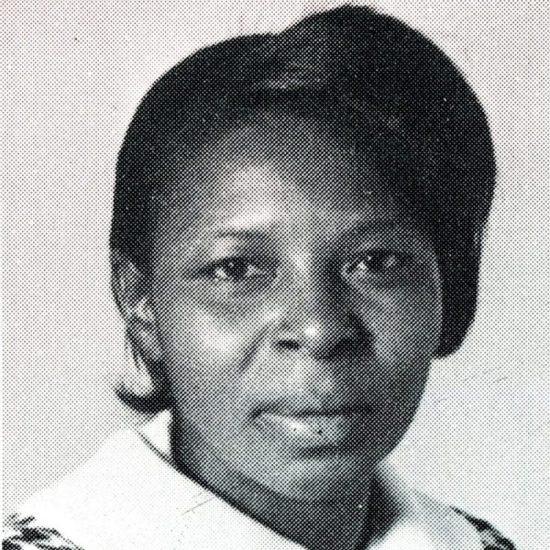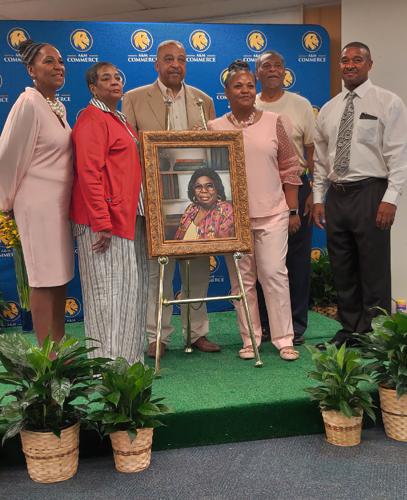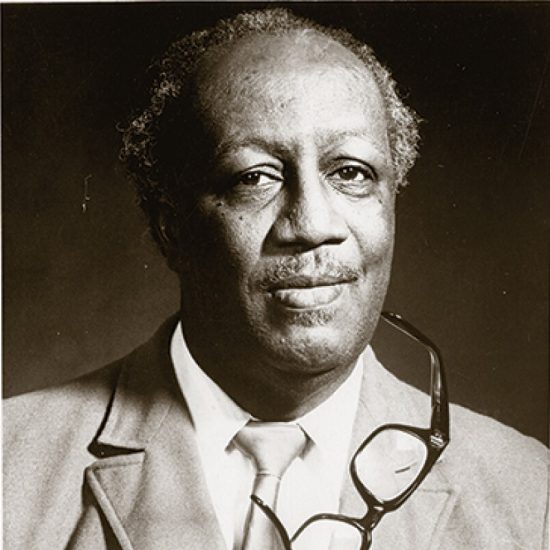The TAMUC Trailblazer: The Legacy of the First Black Student

Black History Month Series Part 2: Honoring and Recognizing Impactful Black Figures in the Lion Family
Texas A&M University-Commerce is renowned for a student body comprised of people from a multitude of races, cultures, and countries. But it wasn’t always that way. At one point, only one non-white student attended the university, a young woman named Velma Waters, who made history as the first Black student to grace campus.
Current students might recognize Velma K. Waters as the campus library’s namesake, but some may not realize the significance of the woman herself and the challenges and obstacles she overcame to attend East Texas State College (now A&M-Commerce). Her life is an inspiration to the generations of students who have followed.
Who was Velma Waters?
Velma Waters was born in Hunt County, Texas, to Leo and Bertha Kinchlow in 1931. According to a biography published by “The Panola Watchman,” Waters always dreamed of attending university. Even as a little girl, she routinely expressed her desire to graduate with a college degree someday.
Her father, Leo, supported her dream. He worked as a mason during the construction of Mayo and Binnion Halls on the Commerce campus. Leo often told his daughter that someday, she might even be a student at the very same campus he worked on.
As she grew up, Waters strove to achieve her vision. She attended high school at St. Paul School in Neylandville, Texas, rising to the top and earning valedictorian status of her graduating class. She married Robert Earl Waters shortly after graduation, and they started a family.
Although marriage and children slightly delayed Waters’ original timeline, she never lost the desire to attend college. In 1960, she applied to East Texas State College.
However, segregation loomed as a huge obstacle between Waters and her dream. Although the U.S. Supreme Court unanimously ruled in 1954 that schools and universities should desegregate, not all schools immediately submitted to the new law. Unfortunately, East Texas State College was one of them.
Despite Waters’ qualifications and the Supreme Court’s declaration, the university denied Waters admission. But that didn't bother her; she was determined to attend not just any school but the same university her father had helped build almost 20 years earlier.
The Times They Are A’Changing
In 1964, the Texas State Teacher’s College System’s Board of Regents finally declared that all institutions must desegregate and allow any qualified student admission to college, regardless of race. The same year, Waters finally enrolled at East Texas State College, becoming the first Black student at the university.
However, her college years weren’t always smooth sailing. Waters encountered challenge after challenge. By the time she began her degree, she was 33 and hadn’t attended school for 17 years, which made getting back into the classroom a bit of a struggle. On top of this, Waters carried a full plate, working full-time as a maid and caring for her eight children. And, in her sophomore year, Waters gave birth to her and Robert's ninth child. Despite the stressors and constant bustle of full-time work and nine children, Waters did everything in her power to finish her degree.
Her walks to campus are a small but powerful testament to her dedication. Waters didn't own a car, but as with all of her trials, she didn’t let this stop her. She devotedly walked two miles to campus for her classes (a four-mile round trip) multiple days a week. Even when she took night classes, Waters marched on, accompanied by her two oldest sons and the family dog for safety.
No matter what came her way, Waters kept trekking (both literally and figuratively) to ETSU until finally, in 1968, she graduated with a Bachelor of Science degree.
She Just Kept Going
But Waters didn't stop at a bachelor’s degree. She went on to earn two master’s degrees at Stephen F. Austin University. She also accepted a teaching position in Carthage, Texas, where she impacted countless young lives.

In 2020, almost two decades after Waters’ death, A&M-Commerce renamed Velma K. Waters Library to honor her significance as the first Black student enrolled at the university. In a press release, the university said they chose Velma Waters as the library’s namesake because she “paved the way for generations of exemplary students to enjoy the right to an inclusive education at A&M-Commerce.”
To this day, Velma Waters has continued to inspire generations of Lions to persevere, to continually work towards transforming their lives, and to just keep walking forward no matter what.
Featured photo: A portrait of a young Velma Waters | Texas A&M University-Commerce




